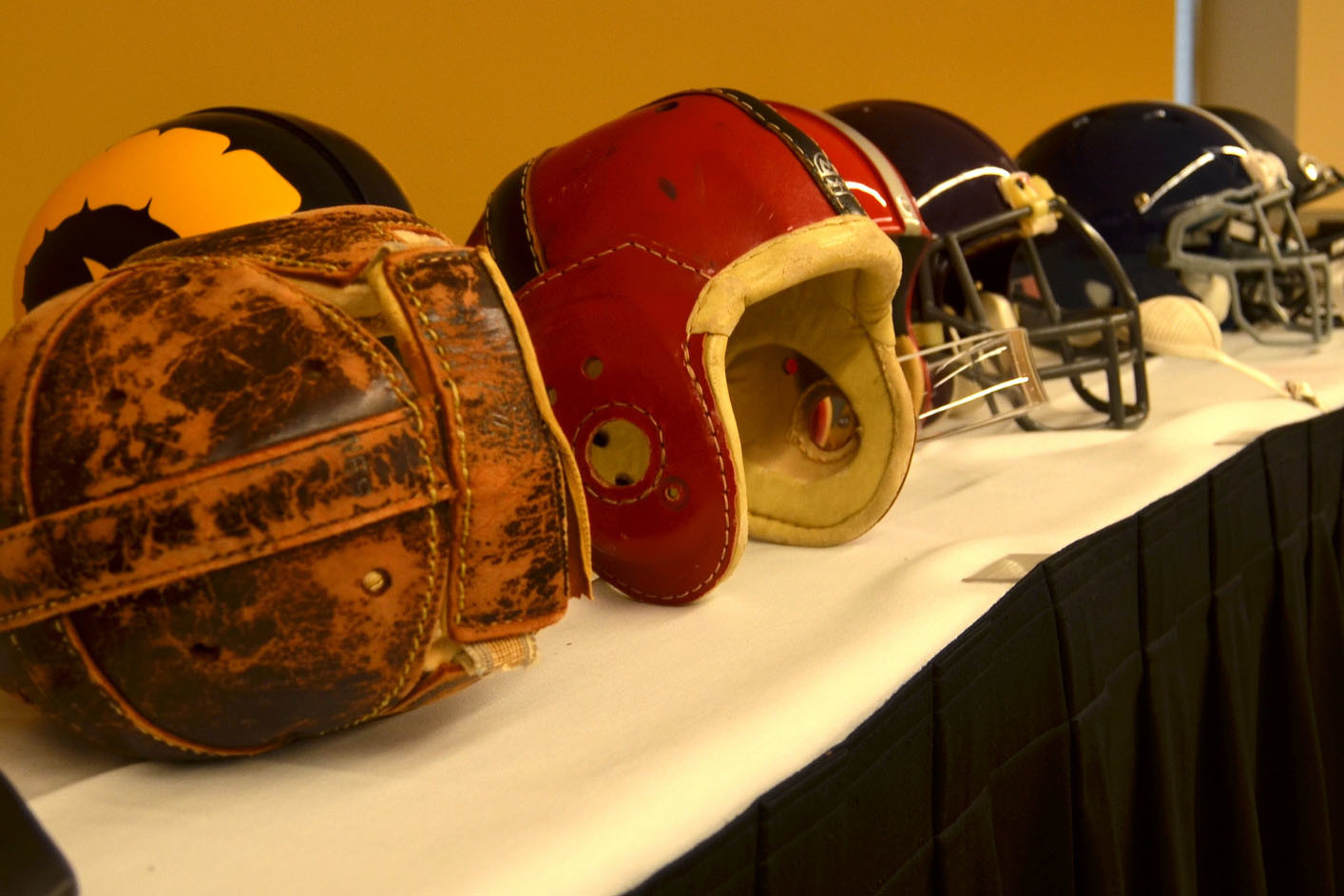There came a sunlit mid-day, not too many years ago, when my wife and I lunched outdoors at the Donna’s at Cross Keys and were joined, quite unexpectedly, by the great Baltimore Colts Hall of Famer John Mackey, who was pitifully out of his mind.
He sat himself down and proceeded, without prompting, to tell us he could get us into the next Super Bowl if we wished. Then he said it again, and then again and again. Over the next half-hour, he said it no less than a dozen times, in precisely the same words.
This was one of perhaps half a dozen sentences he had memorized and repeated endlessly, and in the sweetest, most generous, good-natured way, over and over and over.
Mackey, who has since died, lived in an apartment at Cross Keys at the time and would wander down to the restaurant and shopping center with some regularity. It was already widely known that he suffered from the cruel neurodegenerative disease known as CTE, or chronic traumatic encephalopathy.
I’m reminded of that day, and that disease, because of the fresh, unsettling arithmetic that arrived yesterday connecting CTE and organized football.
John Mackey’s Colts are long gone, replaced in Baltimoreans’ hearts by the Ravens. But the mixed emotions – the discomfort — we face as football fans are renewed by this week’s findings by the Boston University School of Medicine.
Of 202 donated brains belonging to men who played organized football, CTE was found in 177 of them. That’s 87 percent.
Of the 111 brains belonging to ex-NFL players, 110 were diagnosed post-mortem with CTE.
In other words, every time we witness some linebacker nail a running back with a blind-side tackle, and roar our approval to the heavens, we’re cheering the slow destruction of a human being’s mental capacities.
Mackey’s is one of the most high-profile of such cases, but he’s far from the only former Colt who endured his last years behind a veil of confusion and memory loss. Mackey’s wife Sylvia, who stood by him through some dreadful years, described how she’d show John old football films of his remarkable exploits.
“That’s me?” he’d ask.
“Yes, honey, that’s you,” she’d reply.
That’s the way it is for many who play the game and suffer its consequences. For a long time, there were word-of-mouth indications of such results, but the men who run pro football were steadfast in denying the obvious – much the same as tobacco executives used to deny the horrible effects of cigarettes.
We’re way past any denials now. Parents all over America are paying attention, and urging their athletically-gifted children to pursue other sports.
But how will the people who run football respond?
 A former Baltimore Sun columnist and WJZ-TV commentator, Michael Olesker is the author of six books, most recently “Front Stoops in the Fifties: Baltimore Legends Come of Age” (Johns Hopkins University Press).
A former Baltimore Sun columnist and WJZ-TV commentator, Michael Olesker is the author of six books, most recently “Front Stoops in the Fifties: Baltimore Legends Come of Age” (Johns Hopkins University Press).
Top photo: NFL helmet technology through the years (Photo courtesy Erik Drost, Flickr)





